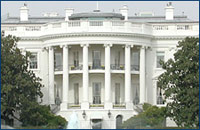Email Negotiation Advice
With the onslaught of email and texting, it’s not surprising that more and more negotiation is being conducted by email. Two interesting recent pieces from the blogosphere had some advice on this. First, you should not actually be conducting negotiation over the email according to Vicky Pynchon at Settle It Now. Scientific American just published a study that shows people are more likely to lie over email than when writing things down with pencil and paper. “The authors suggest that e-mail is a young phenomenon and its social rules are looser and still evolving, whereas when you put something in writing, psychologically there is a stronger hold—it’s really there, in writing.”
And, should you be contemplating sending late night email, you might want to install this new program from Google. As Diane Levin helpfully points out,
Google, understanding full well the dark side of human nature (particularly that side of human nature that responds to its email after too many Jell-O shots in the wee hours of the morning), offers a solution: Mail Goggles. Here’s how it works:
When you enable Mail Goggles, it will check that you’re really sure you want to send that late night Friday email. And what better way to check than by making you solve a few simple math problems after you click send to verify you’re in the right state of mind?
By default, Mail Goggles is only active late night on the weekend as that is the time you’re most likely to need it. Once enabled, you can adjust when it’s active in the General settings.
What seems to me to still be missing is an email program that prevents “flaming” emails from being sent that you then later regret. Perhaps Google can create a program that screens for four-letter words or too many exclamation points and then asks you if would prefer to send this email to a friend rather than the negotiator on the other side?
Cross-posted at indisputably.


